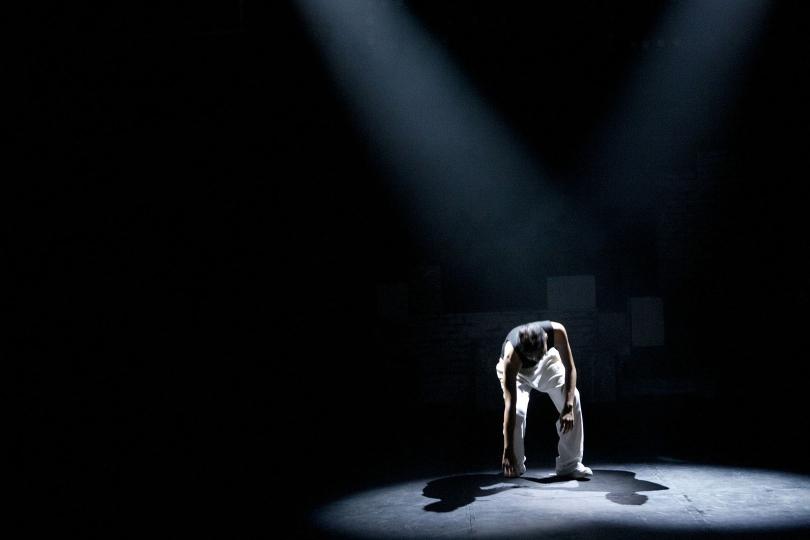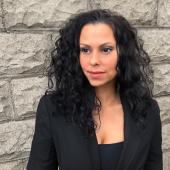White Theater Leaders’ Responses to #GeorgeFloyd

To the white theater companies that have not responded to the murder of George Floyd, Breonna Taylor, and so many others, your silence speaks volumes. To those of you that lagged in your responses, your indifference was noted. To those of you that pumped out hollow and generic statements, your allegiance to your quickly decreasing wealthy, white subscription base instead of the black and brown bodies you claim to represent and uphold was overtly apparent. In the past twenty years of discrimination and heartbreak I’ve experienced within this industry, I have never been more disappointed in so many of our leaders.
To the leaders that did not shy away from terms like “anti-Blackness” and “white supremacy,” thank you. An example of a theater that wrote genuine statements of support included Wonderlust Productions, whose ensemble also provided information on ways to contribute to the movement, anti-racism resources, and links to other social justice organizations. Playwrights’ Center’s call-to-action from elected officials to charge the four officers involved in George Floyd’s murder as well as for all white people to self-examine their privilege was also appreciated. I was especially moved by the words of Pillsbury United Communities President & CEO, Adair Mosley, whose statement concluded with, “This organization will not back down. We will fight. And every victory won will be for those who did not die in vain.”
Some predominantly white led theaters have begun to put their statements into praxis as seen with Mixed Blood Theatre’s Food Pantry and Uprising Theater Company’s artistic leader’s continual social media posts on ways to contribute financially. There are theater companies and leaders that are committed to not leaving it to companies and theater-makers identifying as Black, Indigenous, and other people of color to take action. But, there are still white theater leaders in the Twin Cities, and so many across the country, that have yet to show true allyship.
Beyond written statements, we are waiting to see your actions in response to this historical moment. We want to know how you will change your company in response to the Black Lives Matter movement. If your plan is simply to hire more Black people and shift your programming away from majority white productions, that will not be enough, and on its own, it may even be more harmful.
Unless you are hiring Black, Indigenous, and other people of color to leadership positions, hiring practices will continue to be tokenizing. BIPOC individuals already are predominantly hired in “community engagement” sectors of a company or underutilized in secretarial-like positions. I have worked in such a capacity at several white theater organizations; it has always meant that on top of my job, I was expected to help expand the audience pool, advocate and head EDI initiatives, and continually educate the white leaders on issues of power dynamics. The emotional labor of those jobs is brutal and highly exploitative.
Season planning and program designs are already tokenizing. Most seasons are comprised of white productions with one play written by a Black playwright, and occasionally a play centering on non-Black Latinxs or Asian American characters. This often equates to directors of color only getting hired to direct the productions that showcase their race (such as a Black man being hired to direct an August Wilson show during Black History Month). However, white directors still regularly direct non-white plays and design teams are still overwhelmingly white. Unless programming of more Black productions is accompanied by Black directors, Black stage managers, Black design teams, Black technicians, and Black ushers (and not as a replacement for plays by other people of color), the only real change will be an increase of racial diversity onstage.
We have witnessed the outcome of white institutions increasing racial diversity onstage, and it has done little to further racial equity. Productions that are intended to reflect underrepresented experiences onstage are too often packaged in such a way that white audiences can easily receive them. Productions of Miss Saigon and West Side Story quickly come to mind as examples. However, I can think of many plays that are not as overtly racist and may simply include a fiery Latina character whose English is “no berry good,” or an old mystical American Indian woman, or a “streetwise” Black sidekick, or some other tired trope. Or they are productions that center on traumatic experiences that BIPOC actors then have to relive and perform as a “soft vulnerability” so as not to get recoded as aggressive and alienate the predominantly white audiences. Increasing racial diversity is important, but diversity without further structural change will not lead to racial equality.
Beyond written statements and an intent to produce more Black productions, more action is needed. The selected plays need to be of the slice-of-life and uplifting Black experiences, not just the traumatic. There needs to be an increase of racial diversity backstage and in the offices. There needs to be action plans and policy changes toward racial equity. Mission statements need to be reevaluated and the operational structure reorganized. The target audiences must reflect the racial diversity that is being displayed onstage. These changes are necessary. But, they are still only half measures. Real change will not happen until we dismantle theater’s dominant culture.
White normativity is the prevailing culture of theater. It is apparent from the moment I walk into the lobby. I don’t hear sounds of bomba or plena; I get stopped by white ushers and asked, “Are you in the right place?” When I walk into an audition room, I am not greeted with looks of belonging and people shouting, “¡Wepa!” I get a quick mispronunciation of my name from the white men across the large table. While looking at my resume, they might give an ironic chuckle at the idea of the Latina standing before them having attended college in Idaho, but that’s the extent of the conversation. Then, I have to spend the next two minutes being vulnerable and showcasing my complexity only to be cast as the evil seductress or frumpy maid. When I get called into the office on my day off, leaving the usual black structured blazer and hair gel at home, I get compliments on my spicy, ethnic dress and “wild hair.” On every level, the culture of theater is one that centers whiteness as natural, right, and the universal norm.
Shifting programming, hiring more people of color, and creating more social policies is necessary. But real change is not going to come from an “inclusive” mentality. To include Black, Indigenous, and other people of color implies an inherent ownership of theater, and again, centers whiteness. So long as the dominant culture of theater remains one of white normativity, theater institutions will continue to oppress marginalized populations despite a leader’s good intentions.
So, if you’re of the dominant culture and you cannot authentically make space for Black, Indigenous, and other people of color, but you truly want to change things for the better, what should you do? The answer is simple: get out of the way. Do not remain silent and passively listen. Do not ask us to better educate you. Do not hire more community liaisons. Do not attempt to “give us a voice.” Resign. Advocate for a Black person to take your position. Work at a theater company that was founded by, created for, and run by Black, Indigenous, or other persons of color. Promote and market these theater companies. Raise money for these theaters.
But, you have worked hard to get where you are. I believe that. I trust that you are hardworking, qualified, and maybe even overcame some systemic issues of class and gender. But for so many people of color, it does not matter what else we have had to overcome or how hardworking and qualified we are. Many of us have never had a mentor. We have not had someone supporting us, celebrating our work, or explaining the unspoken rules of this industry. We were not hired based on potential. We gained experience by work we cultivated and produced ourselves. We were hired based on proven experience that still only equated to the rare production that showcases our perceived race. We learned how to code switch and find subtle ways of circumventing your system. We learned your discourse, your customs, your world, only to have a fraction of your opportunities. We are under no illusion that this is a meritocratic society--neither should you.
If you are still thinking your good intentions are enough to unilaterally lead this industry, you are wrong. You have not had to study our cultures your whole life. You have not had to learn our stories. You have not had to dilute your own stories into a narrative that we are comfortable with. To justify why you matter. To be called a virus and blamed for the pandemic. To be afraid of being detained at an airport in fear of someone labeling you as a terrorist. To hashtag your murdered and missing women and girls for others to care. To exclaim that a child cannot be illegal. To live with the very real possibility of dying by a police officer kneeling on your neck or shooting you in your bed while you sleep.
True allyship is action. It is not virtue signaling and lip service, but action. When you transfer the benefits from your privilege to those who lack such privileges, and do not make the conversation about yourself or receive anything in return, that is true allyship. It might not mean that you need to resign. I have seen white leaders actually share their space of privilege with marginalized people. But they are driven by a rigorous code that compels them to continuously self-educate by reading from BIPOC experiences and scholarship, advocating for issues that they have not experienced themselves, cultivating transparency and assuming accountability for their mistakes, and not making their discomfort someone else’s problem. True allies use their power to decenter their role in the industry and the movement.
Definitions
Definitions written in collaboration con mi hermana, Alma Villanueva.
Allyship: When someone in a position of racial, gender, and/or class privilege works in solidarity with and for the struggles and aspirations of those who lack such privilege. Genuine allyship requires the ally to decenter their role, acknowledge their privilege and (unintended) complicity in others’ oppression, self-educate about systems of oppression via BIPOC perspectives and scholarship prior to seeking counsel from BIPOC, and allow space for BIPOC individuals and their stories to be centered. That necessitates relinquishing or sharing power.
Anti-Blackness: A form of racism with its historical roots in slavery that specifically targets Black people. While racism affects different races in different ways, anti-Blackness is the specific devaluation of Black life and the oppression of people visibly perceived to be of African descent. All racialized groups need to do more work on dismantling anti-Blackness.
Culture: Shared ideologies, narratives, values, customs, behaviors, and modes of communication among a group of people.
Dominant Culture: The culture with the greatest power across economic, political, and legal domains.
Equity, Diversity, and Inclusion: EDI has served as an important tool for practice and policy shifts toward social justice, but it is often used as a rhetorical device in which all three very different and complex ideas are viewed as a singular concept for surface level change. For example, a theater company may claim EDI on their mission statement, but solely focus on diversity and inclusion within their organization.
Emotional Labor: An often invisible, unappreciated, yet critical labor performed by underrepresented persons, usually women of color. People perform emotional labor to cultivate community, or to redress racism, and thereby create space for other marginalized peoples. However, people can get burdened with a gendered and racial emotional labor by having to do extra work for white people who want to be anti-racist without actually doing the work themselves.
Exploitative: To use another person or their labor in order to benefit from that person without a reciprocal exchange. For example, a white theater company benefiting from black and brown bodies onstage because it provides the optics of diversity and inclusion without actually making structural changes that are equitable for BIPOC.
Meritocracy: A society or institution where people are advanced and earn privilege based solely on merit.
Oppression: A social system in which certain groups have greater access to social, economic, political, and legal resources, rights, and power. Forms of oppression include racism, heterosexism, sexism, ableism, and classism, among others.
Privilege: When one or more of your social identities (e.g. racial, gender, etc.) allow for fewer obstacles in obtaining material, human, intellectual, and/or financial resources. For example, not having to justify why a play that centers on characters of your race is relevant.
Power Dynamics: The complex and multitude ways in which social relations reflect and constitute society’s uneven distribution of power across cultural, economic, political, and legal domains.
Tokenism: Hiring or soliciting a person of a marginalized population to give the appearance of being diverse or socially progressive without actually making the structural changes necessary to be equitable. For example, hiring white technicians and crew backstage while casting a visually diverse cast to be displayed onstage.
White Normativity: Cultural practices that give the appearance of whiteness as natural, right, and the universal norm. For example, a white person unconsciously feeling comfortable walking in a theater because the other people and their behaviors as well as the environment reflect their own culture.
White Supremacy: A social structure that values white lives more than others. The members of this structure hold the belief, either overtly or subconsciously, that white people are superior to those of all other races. For example, telling people how they should process their trauma and privileging property damage over Black lives.




